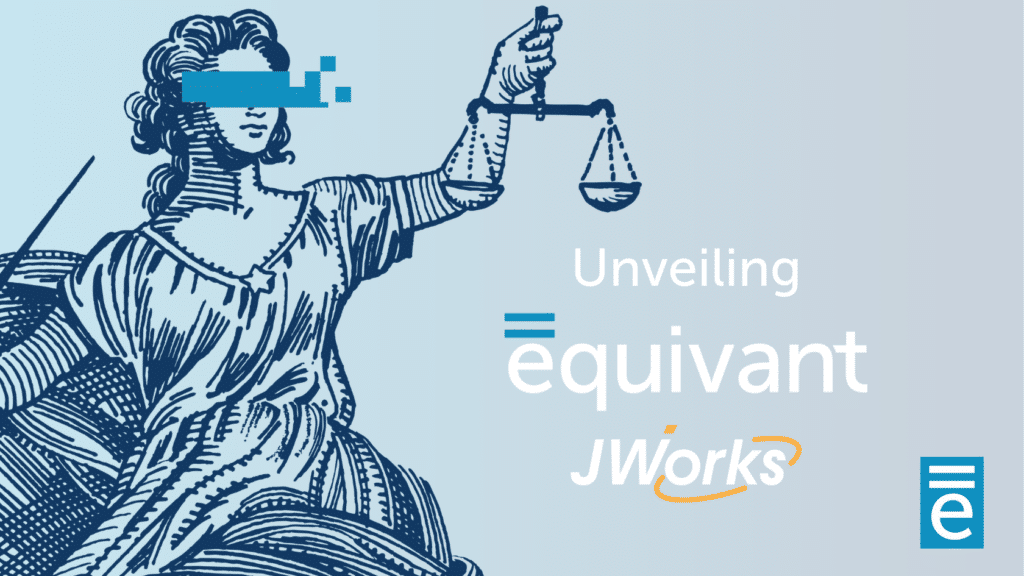Modernizing court case management systems is essential for enhancing efficiency and ensuring justice is fair. equivant’s flagship cloud-based case management system (CMS), JWorks, is designed to meet the growing demands of modern courts by offering unparalleled configurability along with critical features like automated workflows, advanced search options, and data sharing.
As tolerance for outdated systems declines and the development of new technology accelerates, JWorks stands ready to transform court operations, streamline workflows, and support the evolving needs of justice agencies. In this blog post, we unveil our new JWorks video and discuss some of the most essential features the system offers.
Automated Workflows Streamline Court Processes
Automation in the justice industry is revolutionizing the way courts operate, and equivant’s case management system, JWorks, is at the forefront of this transformation. Automated workflows are integral to this revolution, as they streamline court processes by reducing the need for manual intervention. For example, tasks such as scheduling hearings, sending notifications, and managing case files can be automated, allowing court staff to focus on more urgent aspects of their work. Automation not only enhances efficiency but also ensures that processes are carried out consistently and accurately, minimizing the risk of human error.
Increased efficiency means that cases can be processed more quickly, leading to faster resolutions and reducing the backlog of pending cases. Automation also significantly reduces manual errors, which can have serious implications in legal proceedings. An equivant customer who invested in automated reminders saw a 7% reduction in Failure to Appear (FTA) rates, resulting in less jail time for defendants and substantial cost savings for the justice system. By embracing automation, courts can improve their overall effectiveness, ensuring that justice is delivered swiftly and fairly.
Paper-on-Demand Environment
A paper-on-demand environment is a hybrid system that combines the advantages of digital document management with the ability to produce physical documents when necessary. This approach is particularly beneficial in the justice industry, where completely paperless operations can be intimidating due to the long-standing reliance on paper for court processes. With JWorks, users can manage documents digitally while still having the flexibility to print physical copies on demand. This ensures that all stakeholders have access to the information they need, whether in digital or physical form, providing the best of both worlds.
The benefits of a paper-on-demand environment are substantial. It offers significant cost savings by reducing the need for extensive physical storage and minimizing the expenses associated with printing and paper. There are many courts around the country that still have storage facilities just for paper documentation. Paper-on-demand environments also have environmental benefits and provide easier access to documents, as digital files can be quickly retrieved and shared.
Advanced Search Capabilities
Justice agencies have to manage large volumes of data while being able to access it in a timely manner. Without advanced search, this can be next to impossible. JWorks, offers an advanced search feature that’s flexible and can span cases, participants, calendars, and documents. This feature allows users to narrow down their search across various fields, making it easier to find specific documents as quickly as possible. Additionally, it results in improved accuracy and enhanced user experience. By prioritizing information access and implementing best practices for finding things faster, JWorks ensures that court staff can access the data they need without delay. To gain insights on how to optimize information access, read our blog post: Four Ways to Find It – Fast.
Secure Data Sharing and Collaboration
Data sharing and collaboration are essential components in the justice industry, and JWorks, is designed to facilitate these processes securely and efficiently. By enabling seamless data sharing between departments, JWorks supports improved collaboration, allowing court staff to work together more effectively. This enhanced collaboration leads to better decision-making that’s based on comprehensive and accurate data.
With JWorks, justice agencies can leverage data sharing capabilities to break down silos and ensure that information flows smoothly between different departments and agencies. This not only streamlines operations but also helps in identifying patterns and trends that can inform policy and procedural improvements. Secure data sharing also means that sensitive information is protected, maintaining the integrity and confidentiality of court records.
Choosing the Right CMS for Your Court
As we continue to navigate the complexities of the justice system, investing in robust and innovative solutions like JWorks is essential for driving progress and achieving better outcomes for all stakeholders. Your justice agency should take the time to learn about the different CMS options available so that you can choose a system that works best for you.






